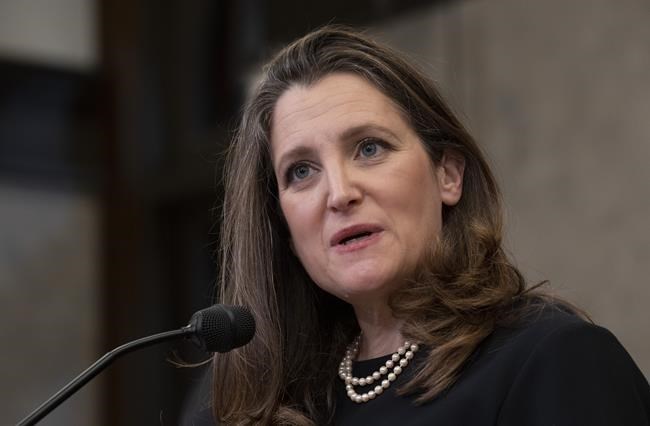WASHINGTON ŌĆö The U.S. Trade Representative's office has once again made its feelings clear about sa╣·╝╩┤½├Į's plan to implement a controversial new tax on digital services.┬Ā
The office issued an abrupt statement today, the final day of public consultation on the proposal, urging the federal government to change course.┬Ā
It wants Ottawa to focus instead on a multilateral plan for a global tax regime for so-called multinational enterprises ŌĆö tech giants like Meta, Facebook's parent company, and Alphabet Inc., which owns Google.┬Ā
sa╣·╝╩┤½├Į's proposal, which includes a three per cent tax worth $3.4 billion in revenue over five years, would only take effect in 2024 if those efforts don't come to pass.┬Ā
But the USTR says that as a signatory to what's known as the "two-pillar" solution, sa╣·╝╩┤½├Į's unilateral alternative risks undermining the global tax plan by encouraging other countries to follow its lead.┬Ā
The office says should sa╣·╝╩┤½├Į's plan go ahead, it would be seen by the U.S. ŌĆö home to many of the impacted companies ŌĆö as discriminatory and a violation of American trade law.┬Ā
The global minimum tax agreement is supported by 136 countries, including all members of the G20 as well as the Organization for Economic Co-operation and Development.
The first "pillar" of that plan is a moratorium on new digital service taxes while G20 and OECD members hash out the jurisdictional and sharing details of the complex scheme.┬Ā
"As sa╣·╝╩┤½├Į is fully aware, the United States has serious concerns about measures that single out American firms for taxation while effectively excluding national firms engaged in similar lines of business," the USTR says in its public submission.┬Ā
It calls the plan a "counterproductive unilateral measure" and urges sa╣·╝╩┤½├Į to "focus efforts on engaging constructively in the multilateral OECD negotiations ŌĆö ensuring that its unilateral measure proposal is unnecessary and that Canadian interests are protected."
Deputy Prime Minister Chrystia Freeland promised to delay the implementation of the tax for two more years, provided the OECD plan has not already kicked in. But the USTR notes it would be retroactive until the start of the current year.┬Ā
Officials in Freeland's office say they are pressing ahead with the plan in the name of defending Canadian interests, but hope it won't be necessary to implement it.┬Ā
Federal ministers have cited the Liberal government's own election promises, including a commitment to require digital companies to compensate legacy media outlets for linking to their work.
This report by The Canadian Press was first published Feb. 22, 2022.┬Ā
The Canadian Press


